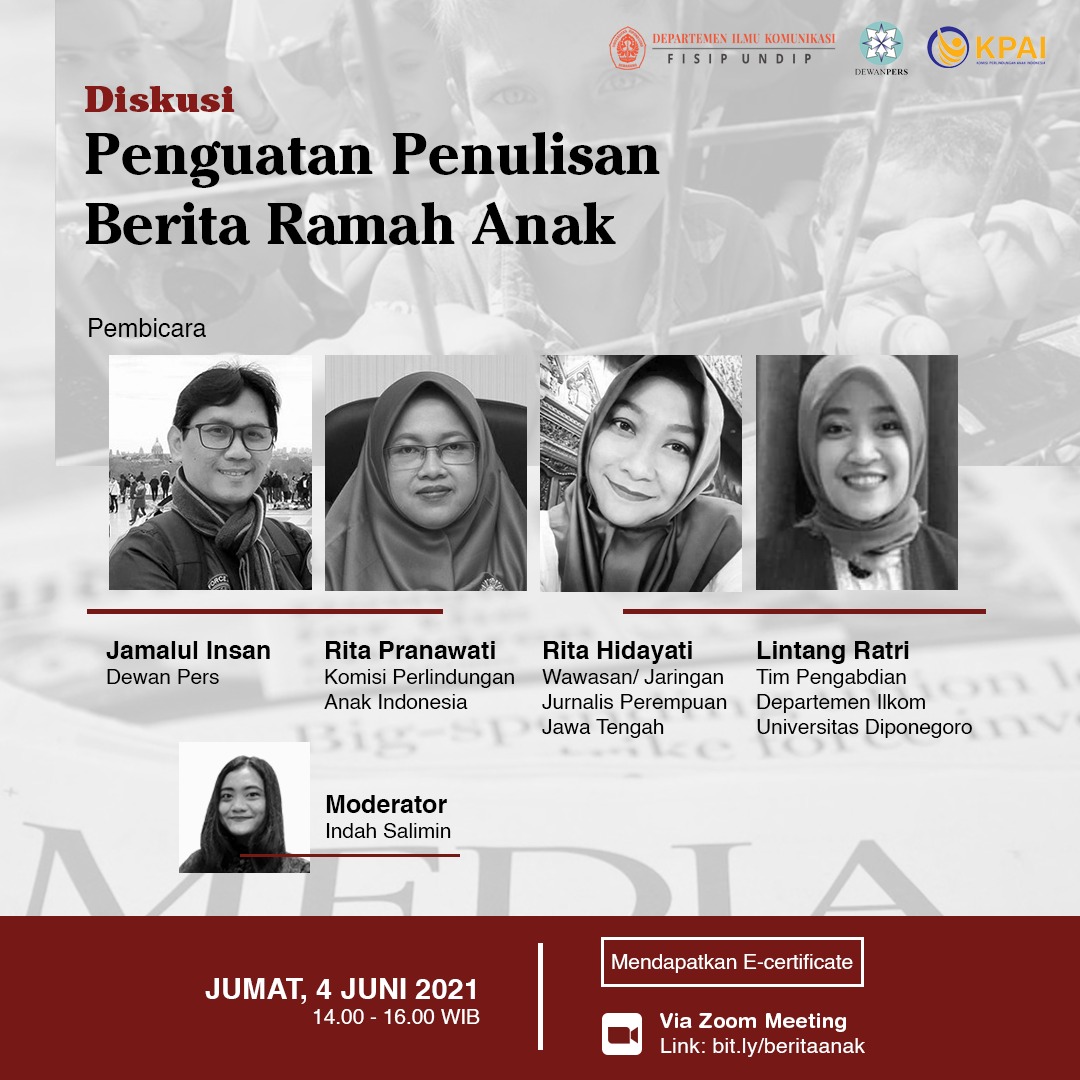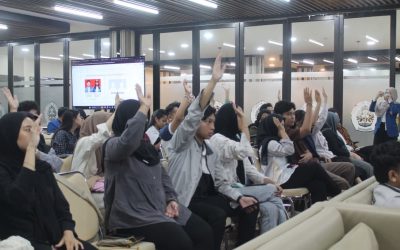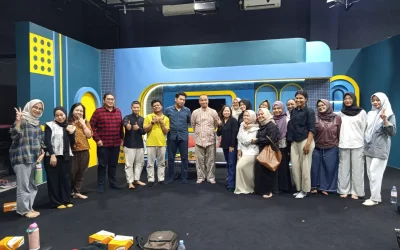Agenda poster entitled Discussion on Child-Friendly News Writing by the Department of Communication Sciences, Diponegoro University. (Photo: Private Doc).
Semarang – The shift in print media technology to online media has made it easier to access various existing news information. Unfortunately, even though it is easily accessible, not all news in online media meets journalistic rules and codes of ethics. One of the journalistic works that are indicated as violating is the writing of news about children as perpetrators and as victims in a case. Therefore, the Community Service Team of the Department of Communication, Diponegoro University has successfully discussed with the title “Strengthening Child-Friendly News Writing”.
This discussion was held on Friday (04/6) involving speakers outside Undip including Jamalul Insan as a representative of the Press Council, Rita Pranawati as a representative of the Indonesian Child Protection Commission (KPAI), and Rita Hidayati as a representative of the Central Java Women’s Journalist Network (JJP). Guided online by a moderator, Indah Salimin, via Zoom Meeting.
“Finally, this child-friendly news gets attention because it is an important topic to talk about. We from the Women’s Journalist Network agree that the persecution of children in the news is a crime. However, children still have a future and we are responsible for their future,” said Rita Hidayati, opening the activity.
According to Rita Hidayati, when a child becomes a perpetrator in a crime, a report should not corner the child and can be delivered in a balanced manner. The media, according to him, should be able to protect the dignity of children, whether as perpetrators, victims, or witnesses.
So not only the protection of reporting on perpetrators and victims but witnesses must also be protected. She mentioned several media who underestimate some of the news about victims because they are considered not to be subject to social sanctions, even though victims can also be affected by social impacts from the community. She also told how JJP Central Java for a year has been guarding children’s reporting.
“If you look at the complaint reports, the number of violations against the guidelines for reporting on children is not too many. But this can mean two things, either the violation of the guidelines is minor, or indeed it is not yet understood. Because the complaints made to the Press Council were also not made by individuals, but from institutions that specifically paid attention to this matter, “explained Jamalul Insan.
For some breaking news, continued Jamal, some were revoked and some just needed to be corrected for the contents of the news. The news that needs to be revoked is a news related to immorality and SARA. Meanwhile, reports that reveal personal identities in detail only need to be corrected.
He gave several examples of media that committed violations, which came from major media and were often read by many people. Finally, he advised the public to submit reports when they found news that violated the reporting guidelines. And for prospective media workers/professionals, especially Jamal, the news should also contain positive elements and use empathy.
“News is facts, but not all facts can be made into the news. So when preaching something, there must be value there. Because a journalist’s job is not a job that just makes news and ends, but a profession that has value there,” Jamal concluded.
Rita Pranawati, a representative from KPAI, revealed the importance of monitoring children’s reporting because, in this digital era, children are now able to find information on their own through personal devices. So when there is bad news, it will have a direct impact on the children who appear in the news. She gave an example of one case (beyond the news of children in the eyes of the law), namely a divorce case where the child was fought over by his parents and his name was written in a news report until finally the child was bullied and didn’t want to go to school.
“This certainly disturbs the child’s psychology. The news should look at the environmental impact on the people who are being reported on,” said Rita Pranawati.
This discussion was followed by a question and answer session between the participants and the speaker which was then closed with a group photo session. Not only knowledge that was shared free of charge with competent speakers, the participants, namely Undip Communication Studies students who took part in this discussion, also received e-certificates as a form of appreciation.
Writer : Amelia Nur P
Editor : Dian Rahma Fika Alnina





0 Comments